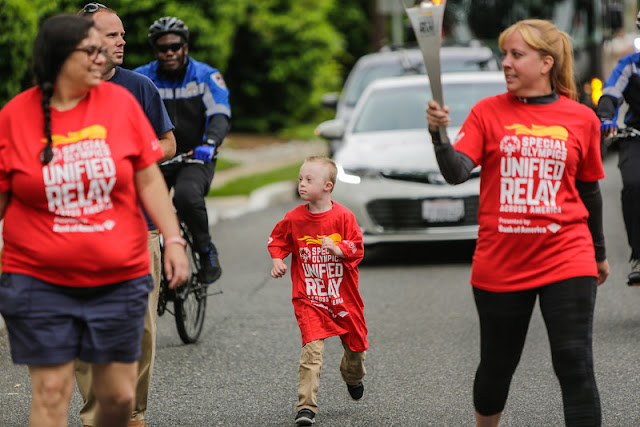Chris and I just spent the past 2 days at the New Jersey Coalition for Inclusive Education's annual inclusion conference and I was left with the push I needed to keep going in supporting Colin in his education. This educational conference is designed for administrators, educators (both general education and special education), CST members, and parents. The conference included two nationally known speakers for inclusive education and they were so good that I sat through ever single talk the gave over the past two days (they each gave 3).
The first presenter was Dr. Julie Causton and the second was Dr. Patrick Schwarz and they were both so inspiring, engaging, and informative. I urge you to check out their websites (both are linked in their names) because they contain so much great information about inclusive education. In addition, Chris and I had the opportunity to hear two keynote speakers, both self-advocates (one with Down Syndrome and the other with Autism), who have such great success stories on transitioning from inclusive education to inclusion in their communities as adults. Their stories really resonated with me because they are living the same dreams we have for Colin in his future; an adult who is a valued, independent, contributing member of his community.
I listened to administrators and educators share experiences about their inclusive schools; places where no segregation exists and all students are educated together. We shared our story with some of those administrators, educators and parents whose children are now older and we got the same response every time; keep fighting because it IS worth it, Colin IS capable and the benefits far outweigh any "negative" that is thrown at us. Most were so baffled that Colin's education was handled the way it was this year because it is just so wrong.
I could sit here and go on and on about all of the things I learned but instead, I'm going to list the top
10 things that I was either reminded of or learned at this conference.
1. There is SUBSTANTIAL evidence over DECADES that supports educating students inclusively but yet school systems are STILL separating students based on disability. This includes scientific research that actually demonstrates that those that are segregated perform less well than their peers and staggering statistics that show that these segregated settings actually negatively impact how these students will do as adults (acquisition of jobs, independent living, etc.).
2. We are showing students in schools that it's ok to separate and segregate people with disabilities. They often have separate busing, separate classrooms, separate tables in the classrooms/lunchrooms, separate places they go, etc. Life doesn't have "self contained" shopping stores, jobs, living so why is it ok to be educated that way?
3. You should always start with what a student is ABLE to do and build from there.
4. Disability should be seen as an attribute, not something that needs to be fixed or "normalized".
5. Education for ALL students should be connected to their interests; it is amazing what students can accomplish when the content is made meaningful for them.
6. Every single person has a RIGHT to belong.
7. Students with disabilities like Colin often have difficulty with transitions, yet they are ones with the MOST transitions.
8. Behavior is a sign of communication; you should ALWAYS figure out what a student is trying to communicate when they are exhibiting certain behaviors.
9. Inclusion is a philosophy that values the diversity within a community and provides all children with an authentic sense of belonging.
10. As an educator, you should examine your attitude by practice saying things like "how CAN this work?" and "how CAN this child be successful?".





























































